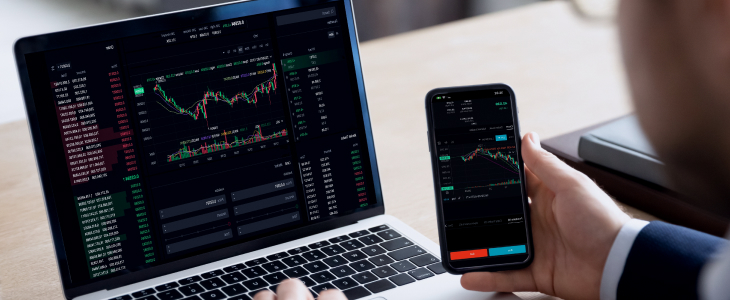
Understanding Forex Trading Companies: A Complete Guide
Forex trading companies play a pivotal role in the global foreign exchange market. Whether you are a novice looking to get started or an experienced trader seeking new opportunities, understanding the dynamics of Forex trading companies is crucial for success. In this article, we will explore what Forex trading companies are, their functions, how to choose the right one, and tips for trading effectively. This information will empower you to make informed decisions in your Forex trading journey. For more resources and insights on Forex trading, check out forex trading company forex-vietnam.net.
What is a Forex Trading Company?
A Forex trading company is an entity that facilitates the trading of currencies in the Forex market. These companies can be classified into different categories, including brokers, market makers, and banks. They provide traders access to the foreign exchange market and offer various services such as trading platforms, leverage options, and educational resources.
The Role of Forex Trading Companies
Forex trading companies serve several critical functions in the trading ecosystem:
- Access to the Market: They provide a platform where traders can buy and sell currency pairs, facilitating smooth transactions in real-time.
- Pricing and Liquidity: Forex trading companies often act as intermediaries between buyers and sellers, providing the needed liquidity for a successful trading experience.
- Leverage: They offer leverage, allowing traders to increase their position size with a smaller amount of capital, thereby magnifying potential profits (and losses).
- Educational Resources: Most companies provide trading education and resources to help traders make informed decisions, enhancing their trading skills and knowledge.
Types of Forex Trading Companies
There are several types of Forex trading companies, each with its unique characteristics and services:
1. Forex Brokers

Forex brokers are perhaps the most well-known type of Forex trading company. They connect traders to the Forex market and offer various trading platforms. Brokers can be further divided into:
- Dealing Desk Brokers: These brokers create their liquidity by taking the other side of a trade.
- No Dealing Desk Brokers: These brokers do not take the opposite side of the trade, instead passing orders directly to the market.
2. Market Makers
Market makers provide liquidity in the Forex market by being always available to trade. They set the bid and ask prices for currency pairs and profit from the difference, known as the spread.
3. Forex Banks
Large banks often act as Forex trading companies, dealing in significant currency transactions and providing liquidity for various trading activities. They cater to both institutional and retail traders.
Choosing the Right Forex Trading Company
Selecting a Forex trading company is a crucial step in your trading journey. Here are some factors to consider:
- Regulation: Ensure that the company is regulated by a reputable financial authority. This adds a layer of security to your funds and trading activities.
- Trading Platform: Look for a user-friendly and reliable trading platform that offers the tools and features you need for analysis and execution.
- Spreads and Fees: Compare the spreads and fees charged by different Forex trading companies, as these can significantly impact your profitability.
- Customer Support: Good customer service is vital. Ensure the company offers a responsive support team to assist you with any issues.
- Account Types: Check if the company offers different account types to suit your trading style, whether you are a beginner or a seasoned trader.
Effective Forex Trading Strategies
Having the right strategies in place is vital for successful Forex trading. Here are some effective strategies you can implement:

1. Technical Analysis
This involves analyzing price charts using indicators, patterns, and trends to forecast future price movements. Tools such as moving averages, RSI, and MACD can be very helpful.
2. Fundamental Analysis
Understanding the economic factors that influence currency values is crucial. News releases, economic indicators, and geopolitical events can significantly impact Forex prices.
3. Risk Management
Successful traders manage risk effectively. Utilizing stop-loss orders and position sizing are key components in protecting your trading capital.
4. Demo Trading
Before committing real money, consider practicing with a demo account. This allows you to test strategies and understand the trading platform without financial risk.
Conclusion
In conclusion, Forex trading companies are a vital part of the Forex ecosystem, providing access, liquidity, and educational resources. By understanding their role and choosing the right company, you can set yourself up for a successful trading experience. Whether you aim to trade for short-term profits or long-term investing, the right Forex trading company and strategies can make a significant difference in your trading journey. Gradually build your skills and knowledge, and you will find your place in the dynamic world of Forex trading.